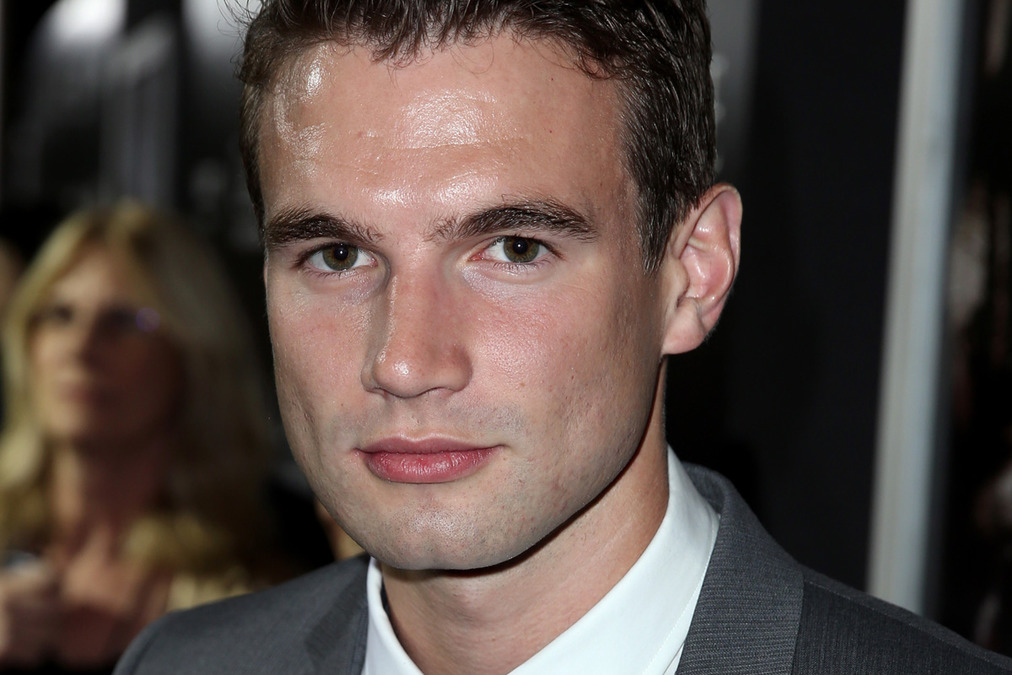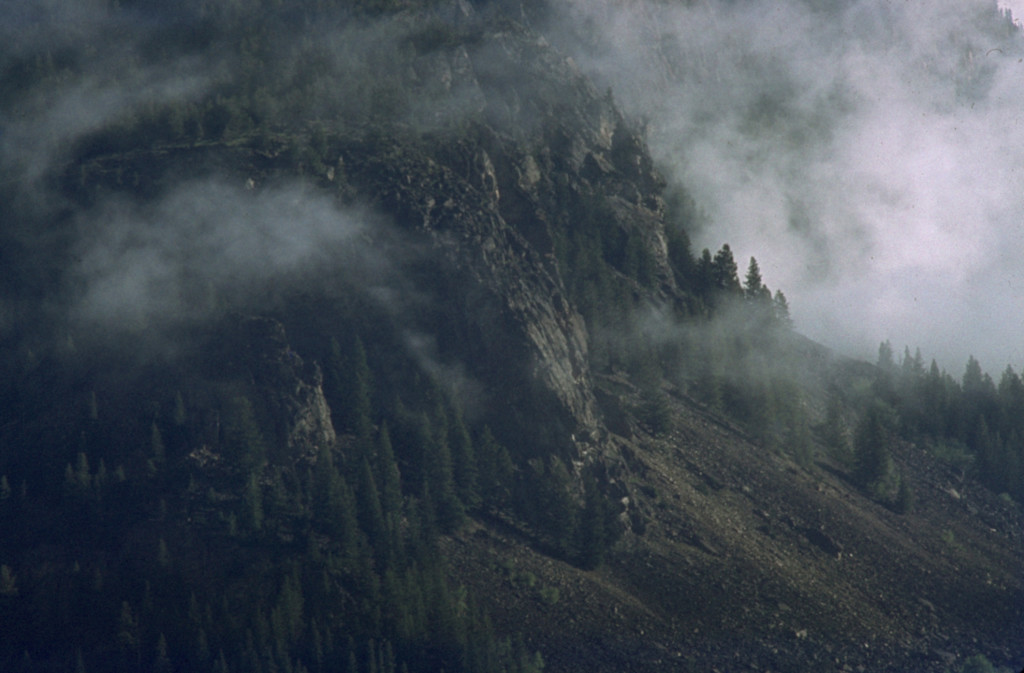Genre: TV Pilot (Fantasy)
Premise: In a distant post-apocalyptic future, a young man in a mountain community begins to wonder what life is like outside his closed-off world.
About: Not much is known about this one other than AMC has shot the pilot and, presumably, will bury him this weekend. It’s being produced by Ridley Scott, which is a great sign, and written by long-time TV writer Jason Cahill. Cahill’s worked on a lot of big shows, including E.R., The Sopranos, Fringe, and AMC’s newest hopeful, Halt and Catch Fire.
Writer: Jason Cahill
Details: 54 pages – 3rd Draft (September 27, 2013)
 Fast-rising actor Alex Russell will play Aethys’ best friend and rival, Roman.
Fast-rising actor Alex Russell will play Aethys’ best friend and rival, Roman.
Miss Scriptshadow and I have finally bit the bullet and started watching Game of Thrones. We realized our failure to get past five episodes in our last attempt had to do with us trying to “surf and watch.” Game of Thrones isn’t a “surf and watch” show. You have to be paying 100% attention 100% of the time or you very well may miss that Feargor is Tybo’s cousin, married to Calgo, whose dead wife, Sheeba, was a Tragdorian, and who’s brother Lingnotro is the secret heir to the throne of Six Whistles. If you don’t know that, it’s impossible to appreciate the show. And thusly, we’ve had no choice but to become hardcore viewers.
This segues idyllically into today’s pilot because, just like Thrones, there’s an extensive mythology and a lot of weird names and family connections to keep track of. We even have a giant page of character breakdowns before the script begins. Indeed, there’s quite the burden of investment required to enjoy Galyntine, but if you keep your sneakers on and fight through the thick bush, you eventually come upon a beautiful view.
Welcome to Mount Galyn, where a “large” community of 500 residents resides. The year? Who the hell knows? But we get the feeling it’s far enough out from the 21st century that little of that world remains.
The people of Mount Galyn are all about living off the land. You know those annoying cis-vegans that make you feel bad for even looking at a cheeseburger? These folks make them look like dog-butchers. They pick berries, they pick leaves, they hunt. But that’s it. You’ll never find the Galyns farming or processing anything. These are simple people who stick to a strict lifestyle.
Enter 23 year old Aethys, who’d had a rough life. As in something chopped off his arm when he was a kid. You’re not too desirable to the ladies if you can’t hunt. And so Stumpy must watch everyone else have the fun while he wonders if there’s a better life out beyond the mountains.
Aethys’ best friend, Roman, is his polar opposite. He’s big, strong, handsome, and routinely brings back the biggest elk. Their alliance is an unlikely one, but they’re both outsiders in their own way (Roman was an orphan).
The one thing besides Roman that keeps Aethys going is Wylie, his forever crush. And despite not being able to Facebook flirt in this world, it’s looking like he might actually get her. Maybe good guys DO finish first. Pfft. Yeah right! When Roman is shockingly rejected by Aethys’ sister, Essyn, Roman surprises everyone and takes Wylie instead! Ouch, talk about putting a damper on a bromance. Wylie the hell did he have to do that?
That’s the last straw for Aethys, who finally decides to get off this mountain. But even his first steps into this foreign land are met with shock. Something is down there. Something big and complicated and advanced. Maybe Aethys didn’t think this all the way through. But before he knows it, it’s too late. The new world makes its first bold move, changing Aethys forever.
Sometimes you read things where you know right away, “This writer knows what he’s doing.” There are people out there who will say that’s not true, that everything’s arbitrary. “One guy will hate your script and another will love it,” they argue. That’s not true. There’s a bunch of gunk filling up the Hollywood sewers that everyone can agree is terrible, stuff written by people who don’t know the craft. Only after that do you get to the arbitrary choice level.
Galyntine is the perfect example of a “some will love it some will hate it” script. I can see people reding this and going, “What the faaaahhhh??” And others going, “Holy shit. Genius!” But whether you like Galyntine or not, you walk away knowing Jason Cahill knows what he’s doing. I didn’t know anything about who wrote this beforehand. I didn’t know if he was a 30 year veteran or a first-time writer. But after a few pages, I knew this guy could write.
This is the next level of “taking a chance” TV. They said a zombie show was risky for a TV show. But people knew what zombies were. They said a big fantasy epic was risky for a TV show. But we’ve seen versions of Game of Thrones before (Lord of the Rings). In all these other “risky” shows, there were at least reference points. There’s no reference point for Galyntine.
This world is part futuristic, part ancient, part magic, part fantasy, part apocalyptic. Weird creatures. Futuristic nano-machines. It’s weird stuff.
In one of the early scenes, there’s an elaborate hunting sequence where our mountain hunters have set up pre-established trampoline-devices so they can catch the high leaping mountain elks. It’s like an operatic ballet, the way it’s described. And I know, just off that sentence, how goofy it sounds (Miss Scriptshadow: “That sounds stupid”), but Cahill makes you believe it.
Once we get to this “town,” the specificity in how this world is described – the rules behind hunting and foraging and weaponry construction and how to live off the land without destroying it – you can feel the depth here. You can tell Cahill has thought endlessly about this world.
In fact, the mythology was so specific and so extensive, I had to look up what material the script was based on. I was shocked when I googled it and NOTHING CAME UP. Galyntine is completely original. This has to be the most extensive mythology I’ve ever seen in script form that hasn’t been based on a book. I’m betting that Cahill’s been working on it for years. I bet you this was turned down everywhere until the TV boom arrived.
But Galyntine isn’t a slam dunk. Whenever you’re talking extensive mythologies, you’re talking about a burden of investment. You’re talking about setting up shit and describing shit. When you write a sci-fi, fantasy, or period pieces, you’re allowed to be extensive when describing this stuff.
In fact, it’s encouraged. Galyntine doesn’t work if every action paragraph is one line (i.e. “Hunters prepare for their prey in the forest.”) It’s the specificity of the writing that brings the world to life, that gives it depth. Here’s the paragraph that Cahill chooses instead…
You can see how much more you gather from this description.
With that said, you can’t overdo it. Writing in fantasy is not a license to go description-crazy. You must find balance. Personally, I find that the more words a writer uses, the more insecure they are about what they’re saying. They’re using their paragraphs to figure their thoughts out, and therefore the paragraphs come off long and unfocused. Screenwriting is about finding those perfect “power” words that say what twenty words couldn’t.
“The top of his leg pale and sickly, the open wound discards his fluids haphazardly,” isn’t as good as a simple “His severed leg GUSHES blood.” We get “gushes.” I could have some friends over and engage in a 3 hour discussion about what “discards his fluids haphazardly” means and not come to a conclusion (note: I’m actually read that phrase before).
But getting back to the story, the idea with sci-fi or fantasy is you have to get to something identifiable sooner or later. We’ll give you some time to set your world up. But if you don’t give us something relatable at some point, we’re checking out.
At its core, the Galyntine pilot was a simple story about a boy who wanted a girl. His best friend then betrayed him and took her (something else we identify with) and he became frustrated with his lot in life (something else we identify with) and wanted to see what the world was like outside of this bubble (something else we identify with).
The reason to create identifiable and relatable situations in a fantasy story is because everything else is so foreign. I’ve never lived on a mountain. I don’t hunt elks with trampolines. I don’t understand weird “land” politics about where I can or can’t walk because the ground is sacred. But I know what it feels like to be rejected. I know what it feels like to want something more. That’s why that character stuff is so important to get to in your pilot.
Galyntine is a hell of a unique property. It’s so different that we’ll have no idea if it works until we see it. If it’s shot like Revolution, cheesy and cheap, it’s doomed. But if the production is approached with the same level of love and passion the script is written with, it could be incredible.
[ ] what the hell did I just read?
[ ] wasn’t for me
[x] worth the read
[ ] impressive
[ ] genius
What I learned: I see this a lot and it always irks me. While almost all the writing here was strong, this one line stood out to me as a no-no: “A NOISE punches the air.” A noise punches the air? What noise? What does a “noise” sound like? A noise can be 15 million different sounds! Instead of saying a “noise” is heard, tell us what the noise is! A “deep throbbing bass” shakes the ground. A “LOUD SCREECH” shoots through the hallway. A “PIERCING HIGH-PITCHED ALARM” assaults the cockpit crew. Noises need to be described.



